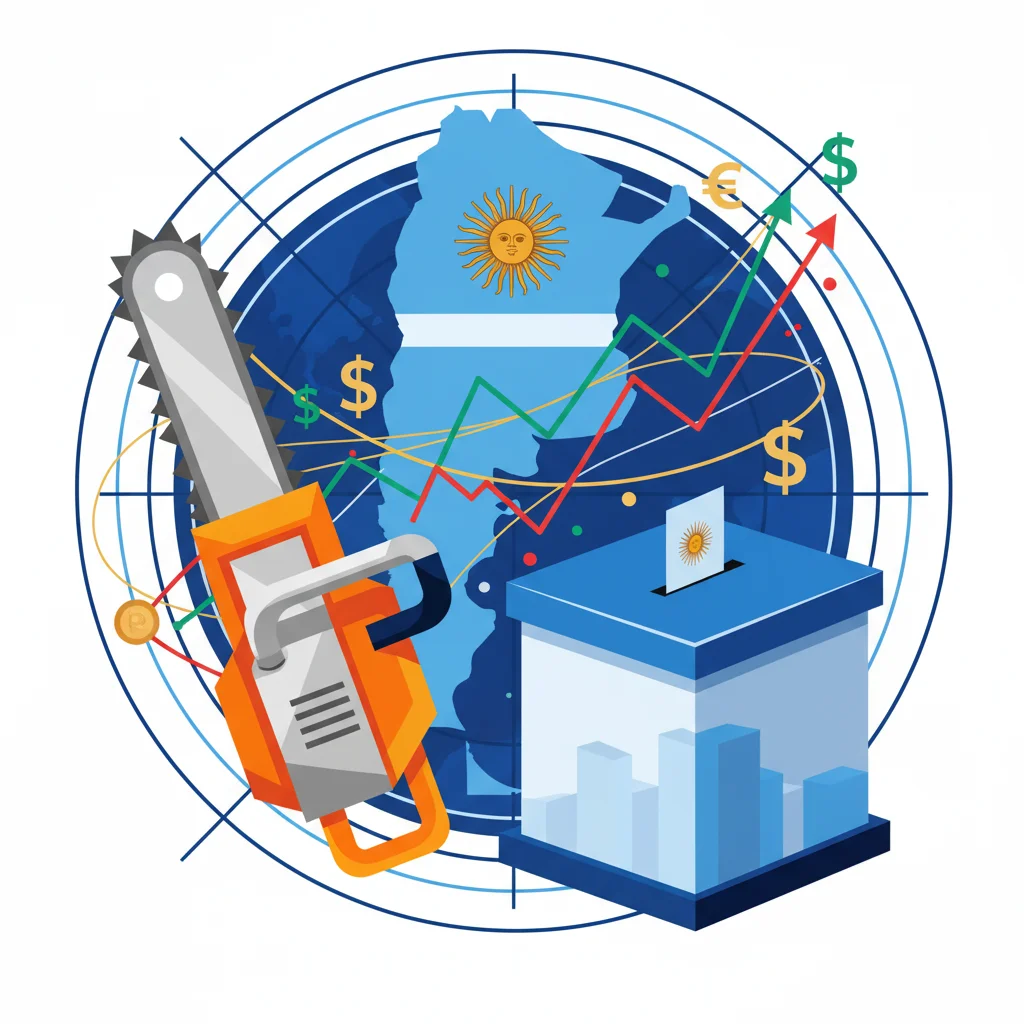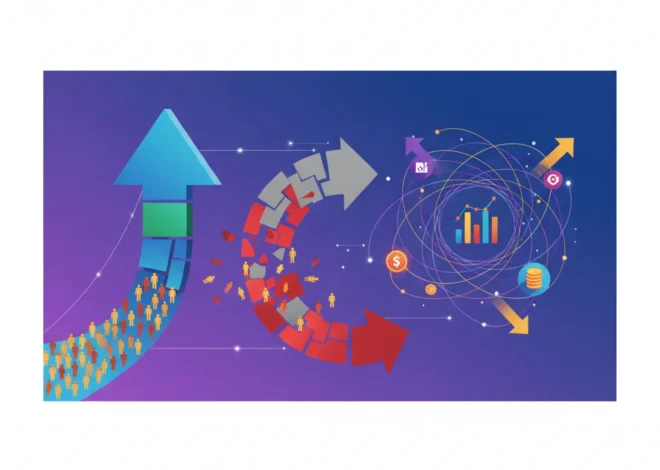
The Chainsaw and the Ballot Box: What Javier Milei’s Election Win Means for Argentina’s Economy and Global Investors
Argentina, a nation long defined by its passionate culture and tragic economic cycles, has once again captured the world’s attention. In a stunning turn of events, voters have delivered a significant victory to the coalition of President Javier Milei, the self-described “anarcho-capitalist” whose radical economic reforms have shaken the country to its core. This electoral endorsement, coming after weeks of severe financial market turmoil and painful austerity, is not just a local political event; it’s a high-stakes referendum on one of the most audacious economic experiments in modern history. For investors, finance professionals, and business leaders, the message from the Argentine electorate is clear: the “shock therapy” will continue. The question now is whether this painful medicine will cure the patient or create a new, more volatile set of problems.
To understand the magnitude of this moment, one must first grasp the depths of the crisis Milei inherited. For decades, Argentina has been trapped in a vicious cycle of populist spending, currency controls, sovereign defaults, and hyperinflation. When Milei took office, annual inflation was careening towards an eye-watering 200%, the central bank’s reserves were depleted, and the economy was suffocating under a mountain of debt and regulation. His diagnosis was as brutal as his proposed cure: the political establishment, or “la casta,” had poisoned the system, and only radical, free-market surgery could save it.
The ‘Chainsaw Plan’: A Deep Dive into Milei’s Economic Overhaul
President Milei’s approach, popularly known as the “chainsaw plan,” is a textbook application of economic shock therapy. The strategy is built on a few core pillars designed to fundamentally restructure the Argentine economy and its relationship with the state.
First and foremost is a drastic fiscal adjustment. Milei has pledged to eliminate the fiscal deficit, the primary driver of the country’s chronic inflation. This involves slashing public spending with unprecedented fervor, including shuttering government ministries, cutting subsidies for energy and transport, and halting public works projects. The goal is to force the government to live within its means, thereby ending its reliance on the central bank’s money-printing press to finance its operations.
Second is a major monetary and currency realignment. Upon taking office, the government enacted a steep devaluation of the official peso exchange rate, a necessary step to close the gap with the parallel “blue dollar” market and boost export competitiveness. This, however, is merely a prelude to Milei’s ultimate, more controversial goal: the abolition of the central bank and the dollarization of the economy. This would mean abandoning the peso entirely in favor of the U.S. dollar, a move intended to permanently kill inflation and restore stability.
Finally, the plan involves sweeping deregulation across the economy. From labor laws to trade tariffs, the administration is seeking to dismantle the complex web of Peronist-era controls that have, in their view, stifled competition, investment, and productivity for generations. The initial results of this shock have been, as expected, painful. Inflation spiked even higher following the devaluation, and the economy has plunged into a sharp recession as austerity measures took hold. It was against this backdrop of short-term pain that the midterm elections were held, making the victory for his coalition all the more remarkable.
UK Hints at Energy VAT Cut: A Lifeline for the Economy or a Risky Fiscal Gamble?
An Unprecedented Mandate: Interpreting the Election Results
The victory provides Milei with a crucial, if not overwhelming, political mandate. While his party does not control Congress, the strong showing signals that a significant portion of the population is willing to endure the current hardship for the promise of a stable future. After years of economic decay, Argentine voters have demonstrated a profound exhaustion with the status quo, choosing the uncertain promise of radical change over the certain failure of past policies. This public backing is the most valuable political capital Milei has, giving him leverage to negotiate with a fragmented opposition and push his ambitious reform agenda through the legislature.
To illustrate the stark reality facing the country and the ambitious targets of the new administration, consider the following economic snapshot:
| Economic Indicator | Situation Inherited (Late 2023) | Immediate Post-Reform Impact (Q1 2024) | Administration’s Stated Goal |
|---|---|---|---|
| Annual Inflation | ~211% (source) | Initial spike, followed by slowing monthly rates | Single-digit annual inflation |
| Fiscal Balance | Primary Deficit of ~3% of GDP | Monthly surpluses achieved via cuts | Zero deficit (“Deficit Cero”) |
| Central Bank Reserves | Negative net reserves | Gradual accumulation of dollars | Sufficient reserves for dollarization |
| GDP Growth | Stagnant / Negative | Deep recession (-5% projected) | Sustainable, private-sector-led growth |
Implications for Global Finance, Investing, and Technology
For the international community, Argentina’s libertarian experiment is more than just a political curiosity; it has profound implications for finance, investing, and even the future of financial technology.
The High-Stakes Bet in the Stock Market
For adventurous investors, Argentina has transformed into one of the most compelling high-risk, high-reward plays in emerging markets. The country’s stock market, represented by the Merval index, and its sovereign bonds have rallied significantly on the prospect of a pro-market government finally taming the country’s fiscal demons. A successful turnaround could lead to a massive repricing of Argentine assets, which have traded at distressed levels for years. Sectors poised to benefit from deregulation and a stable currency include energy (Vaca Muerta shale formation), agriculture, mining (lithium), and technology. However, the risks are commensurate with the potential rewards. Any political setback or failure to control inflation could trigger a rapid and severe market correction. This is a market for those with a strong stomach for volatility and a deep understanding of political risk.
Fintech and Blockchain: A Libertarian’s Dream?
Milei’s deep-seated distrust of central banking and his vocal support for currency competition create a uniquely fertile ground for innovation in fintech and blockchain. In a country where citizens have long used the U.S. dollar as a store of value and a unit of account, the leap to digital dollars or other cryptocurrencies is not a large one. Milei’s administration could foster a light-touch regulatory environment for financial technology, potentially turning Argentina into a sandbox for blockchain-based solutions. As the traditional banking sector grapples with radical change, fintech firms could step in to offer more efficient payment systems, crypto-backed credit, and decentralized finance (DeFi) platforms. This environment makes Argentina a critical case study for the future of money and the role of blockchain in an economy actively seeking alternatives to a state-controlled financial system.
The Future of Banking and Trading
The prospect of dollarization would fundamentally rewrite the rules for the entire banking sector. It would eliminate currency risk, a major headache for decades, but also remove the potential for profits from foreign exchange trading. Banks would need to adapt to a more stable, but potentially lower-margin, environment focused on traditional lending and services. For international trading firms, a stable, dollarized Argentine economy would be far easier to integrate into global capital flows, but the transition period will be fraught with uncertainty. The success of this grand experiment in economics will be measured not just in inflation points, but in the resilience and adaptability of its financial institutions.
The Long Road Ahead: Can the Momentum Be Sustained?
Despite the electoral tailwind, President Milei’s path is lined with obstacles. His coalition lacks a majority in Congress, forcing him to negotiate every major reform with a skeptical and often hostile opposition. The powerful Peronist-aligned trade unions have already staged general strikes and will continue to resist labor reforms and austerity measures that impact their members. Furthermore, Argentina’s fate is not entirely in its own hands. The country’s success is still tied to global commodity prices and the ongoing support of the International Monetary Fund (IMF), which holds Argentina’s largest-ever loan program.
The Absurdist's Edge: Why Acknowledging Workplace Nonsense is a Winning Investment Strategy
In conclusion, the recent election results have armed Javier Milei with the political ammunition to double down on his revolutionary economic project. He has convinced a weary populace to trade the certainty of decline for a chance at prosperity, even if it means traversing a valley of economic pain. For the world of finance, this is a live, real-time stress test of libertarian economic theory. The outcome will have lasting consequences, not just for Argentina’s 46 million people, but for the global debate on the role of the state in the economy. Whether Argentina becomes a beacon of free-market revival or a cautionary tale of a gamble that went too far, one thing is certain: the world is watching.


